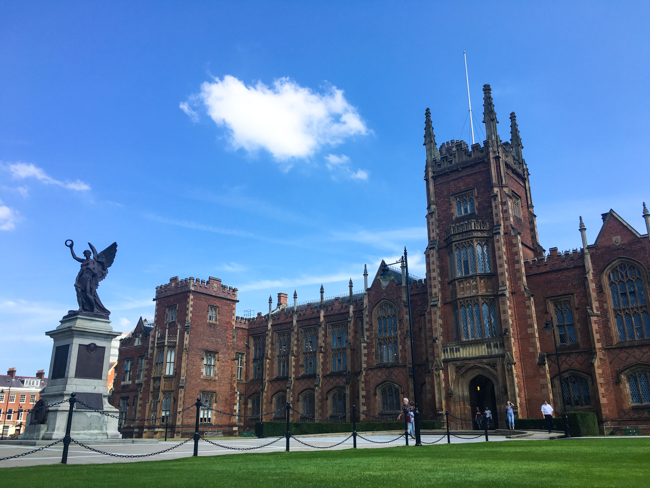Queen’s University Belfast is set to join the UK’s controversial teaching excellence framework, despite strong concerns from staff and students.
Queen’s Senate – the university’s governing body – voted to join the Teaching Excellence and Student Outcomes Framework, after a meeting yesterday afternoon. The framework – which has triggered outpourings of concern from anxious staff and students in the UK over the last few months – nominally measures teaching quality in universities. Plans to link rankings to fee increases were stalled by the government’s decision earlier this year to freeze tuition fees at £9,250.
A Senate member, speaking to The University Times on the condition of anonymity because Senate meetings are confidential, confirmed that there was an 11-10 vote in favour of Queen’s joining the teaching excellence framework.
Votes are incredibly rare at Senate meetings – often decisions are taken on the basis of a majority consensus, as decided by the chair. Queen’s had initially decided not to join the teaching excellence framework when it first launched.
In an email statement to The University Times, Queen’s University Belfast Communications Officer Emma Gallagher said the decision to join the teaching excellence framework will “bring the University into line with HE providers in England, including English universities in the Russell Group”.
The Russell Group is made up of 24 of the UK’s top universities, including Queen’s.
Gallagher said the teaching excellence framework was introduced to “better inform students’ choices about what and where to study; to raise esteem for teaching; and to recognise and reward excellent teaching”.
New proposals from the government state that membership of the teaching excellence framework will be compulsory for English universities from 2019.
Speaking to The University Times after the vote, the President of Queen’s University Belfast Students’ Union (QUBSU), Stephen McCrystall, said it was a “very close vote”.
McCrystall was critical of the decision to join the teaching excellence framework. His union, alongside the National Union of Students-Union of Students in Ireland (NUS-USI), has been heavily critical of the framework.
In April, NUS-USI voted to “carry out work to compose an alternative Teaching Excellence Framework…. without encouraging further marketisation of our education system”.
“There is a consensus it is a flawed system”, McCrystall said. He also questioned why yesterday’s vote was the first opportunity to voice formal opposition to joining the teaching excellence framework, especially when it is “something which alters the trajectory of our university”.
Students’ unions in the UK have been largely united in their opposition to the Teaching Excellence Framework, with the National Union of Students (NUS) launching a boycott of the National Student Survey – one of the core metrics of the framework – in an attempt to sabotage the data.
One of the most headline-grabbing aspects of the teaching excellence framework was the use of medals – gold, silver and bronze – to rank UK universities. The results of the framework, published in June, prompted a mixed response: some universities criticised the new system as meaningless, while some of the UK’s best-regarded universities, such as the London School of Economics and the University of Liverpool, faced questions after getting a bronze ranking.
Speaking to The University Times before the Senate meeting yesterday, Dr Fabian Schuppert, who is a member of the Senate, said he was sceptical about the benefits of the teaching excellence framework. The metric, he said, is “problematic”.
Schuppert said he was “cynical when it comes to centrally devised measures”, created by people who aren’t academics. While he acknowledged that it was important to measure teaching, he said there was a majority of staff in Queen’s who feel the framework “isn’t actually a very good system”.







